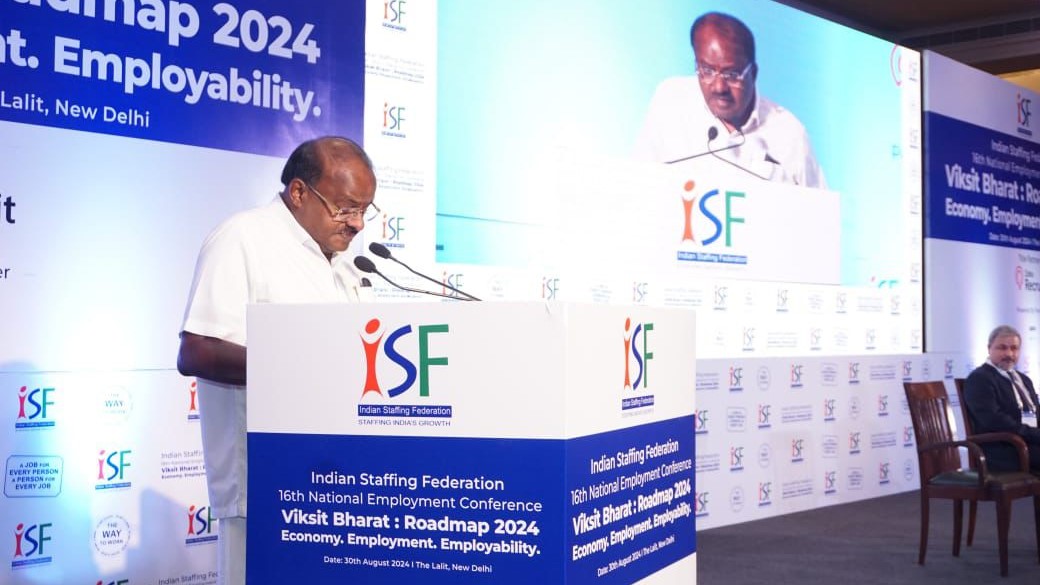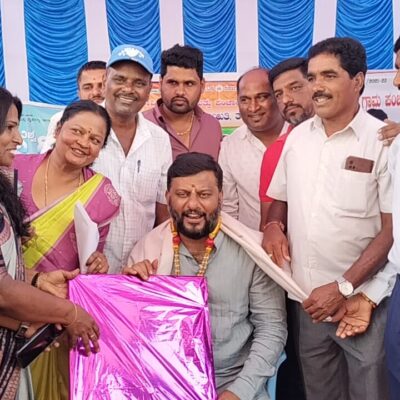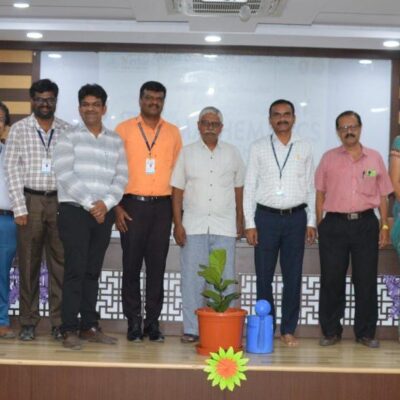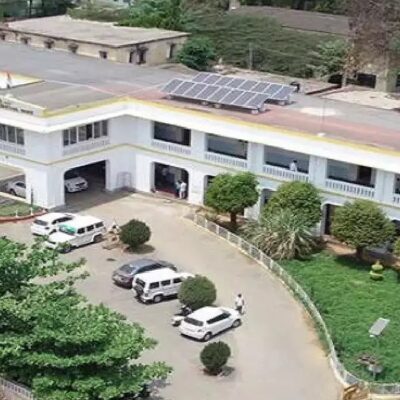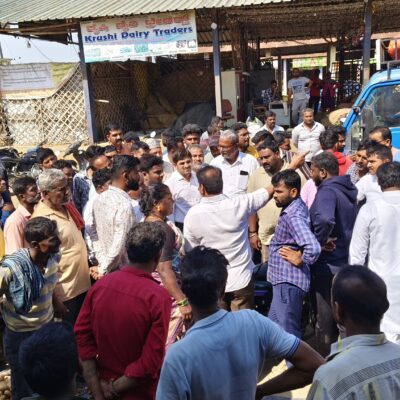

New Delhi: The Indian Staffing Federation (ISF) successfully convened its 16th National Employment Conference on Friday, with Union Minister of Heavy Industries and Steel, H.D. Kumaraswamy, gracing the event as Chief Guest. The conference also saw the participation of key government officials, including Atul Tiwari, Secretary, Ministry of Skill Development and Entrepreneurship, Ramesh Krishnamurthi, Additional Secretary, Ministry of Labour and Employment, along with Lohit Bhatia, President of the Indian Staffing Federation, and other prominent industry leaders. In his keynote address, Kumaraswamy emphasized the crucial role of the ISF’s National Employment Conference as a pivotal platform for deliberating on the future of formal employment within India’s heavy industries.
He underscored the conference’s focus on fostering more inclusive labour markets by addressing the needs of individuals entering the workforce from grassroots levels, in alignment with key government initiatives. The conference provided a forum for in-depth discussions on critical issues such as formal and organized labour, the dignity of labour, continuous upskilling, and social security — all of which are fundamental to driving India’s economic growth. Minister Kumaraswamy highlighted the significance of organized contract staffing, noting that over 5.4 million individuals are currently employed through organized contract and temporary staffing companies across the country. These companies are instrumental in ensuring the timely payment of wages, providing social security and medical insurance, and maintaining compliance with government tax regulations.Collectively, the Indian Staffing Federation represents staffing companies that employ 1.6 million temporary workers.
Addressing the Viksit Bharat mission, Kumaraswamy reiterated the government’s commitment to establishing India as a global hub of opportunities for both companies and talent. He emphasized the government’s focus on sectors such as manufacturing (including semiconductors), electric vehicles, infrastructure, renewable energy, defense, mining and metals — sectors poised to drive significant formal employment growth. The Minister pointed out that India is expected to generate over 20 million jobs within the next four years, with formal employment rates varying across sectors like automobile and engineering, which have relatively higher formal employment rates compared to sectors such as construction and mining.
The Union Minister also acknowledged the Indian government’s progressive policies, including recent budget announcements aimed at fostering formal employment growth through Employment Linked Incentives, particularly in the manufacturing sector. These policies are designed to alleviate compliance related challenges, enhance contributions to social security, and fortify the overall employment landscape. Minister Kumaraswamy further stressed the pivotal role of heavy industries in creating employment opportunities and contributing to economic growth. By expanding formal employment, these industries can play a significant part in reducing unemployment and poverty in India. He commended the government’s policy developments aimed at promoting formal employment through incentives, labour-friendly regulations, skill development programmes, workforce training, and stringent compliance with labour laws to safeguard workers’ rights and benefits across all sectors of heavy industries.
In his concluding remarks, the Minister called for the establishment of a favourable environment that encourages investment in the growth of heavy industries and the formalization of the labour workforce. He underscored the importance of upskilling as a means to raise the employability quotient essential for industry needs. The Minister also recognized the staffing industry’s vital role in mobilizing, skilling, and preparing individuals from diverse backgrounds to enter the formal employment market. He also highlighted the importance of social security measures to ensure the well-being of workers, emphasizing the government’s proactive stance in crafting policies that attract investment and talent across various sectors. He stressed that upskilling and workforce development are crucial to maintaining India’s competitive edge in the global economy. Kumaraswamy concluded by expressing his appreciation to the Indian Staffing Federation for organizing this significant event. He expressed confidence that the discussions and insights garnered from the conference would lay the groundwork for a stronger and more resilient labour market in India.

